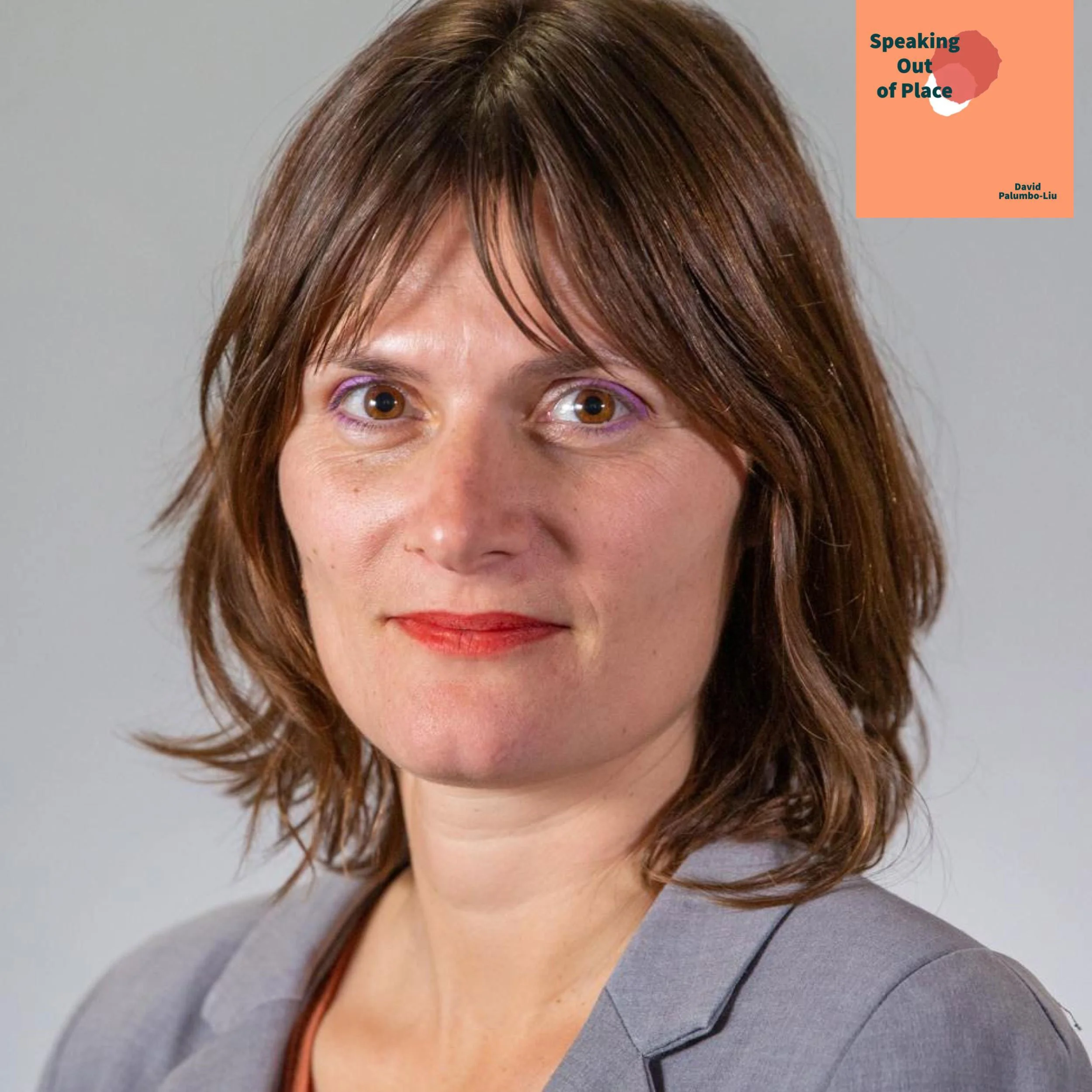In this episode of the Speaking Out of Place podcast, Professor David Palumbo-Liu interviews Adam Aron, author of The Climate Crisis: Science, Impacts, Policy, Psychology, Justice, Social Movements. As the title of the book indicates, it is a systematic and thorough discussion of not simply the Climate Crisis, but also, and very importantly, all the key elements we need to know about to do effective activism to save our planet.
Adam Aron is a climate activist and professor of psychology at the University of California, San Diego. His research and teaching focus on the social science of collective action on the climate crisis. Adam’s research and teaching focus on the social science of collective action on the climate crisis. His climate activism has been through the Green New Deal at UC San Diego where he has worked on several campaigns such as fossil fuel divestment and also campus decarbonization via ElectrifyUC and he has also produced the documentary Coming Clean. Before switching to the climate crisis, Adam had a successful career in cognitive neuroscience. He earned his PhD from the University of Cambridge, and was a postdoctoral fellow at UCLA.
David speaks with Adam first about the fact that science has shown that we are at a tipping point in the climate crisis—a point of no return. After that, they explore the psychological responses to that science, and how we might work toward changing our individual, collective, national, and international behaviors and actions to address the accelerating climate crisis.
ADAM ARON
Psychology has something to tell us about why so few people are really engaged in the climate struggle. There are different components to this. First of all, there is what I call epistemic skepticism in the book, which is to say, skepticism about the facts of climate change. The second thing is threat perception, that threat levels are not as high as they should be. And the third is that people are skeptical about the response. They don't think that they can do anything, or they don't believe that groups or even countries can make a difference. Epistemic skepticism: psychologically this means that quite a lot of people, for example, the United States, don't believe in the human cause of heating. And the reason for that is very much to do in fact, with the systematic campaign of misinformation that's been fostered by the fossils industry going back, particularly to the 1990s and even to today, systematically set out to confuse people about the scientific consensus. And that's been very successful. So that's some of that skepticism. And then people who do accept the human cause may not recognize that the impacts are bad or that they will be bad. And that is sort of to do with the second issue, which is what I'd call threat perception, which is a psychological question. We should be very threatened by this. In fact, the youth, generally speaking, are anxious to some extent about it. In effect, Mother Earth is saying, "I can't deal with what you're doing to me, people. I'm putting up my temperature." And if you're not feeling anxious, then you're not paying attention. That's the right way to feel on Planet Earth.
*
Speaking Out of Place, which carries on the spirit of Palumbo-Liu’s book of the same title, argues against the notion that we are voiceless and powerless, and that we need politicians and pundits and experts to speak for us.
Judith Butler on Speaking Out of Place:
“In this work we see how every critical analysis of homelessness, displacement, internment, violence, and exploitation is countered by emergent and intensifying social movements that move beyond national borders to the ideal of a planetary alliance. As an activist and a scholar, Palumbo-Liu shows us what vigilance means in these times. This book takes us through the wretched landscape of our world to the ideals of social transformation, calling for a place, the planet, where collective passions can bring about a true and radical democracy.”
David Palumbo-Liu is the Louise Hewlett Nixon Professor and Professor of Comparative Literature at Stanford University. He has written widely on issues of literary criticism and theory, culture and society, race, ethnicity and indigeneity, human rights, and environmental justice. His books include The Deliverance of Others: Reading Literature in a Global Age, and Speaking Out of Place: Getting Our Political Voices Back. His writing has appeared in The Washington Post, The Guardian, The Nation, Al Jazeera, Jacobin, Truthout, and other venues.
Bluesky @palumboliu.bsky.social
Apple Podcasts · Spotify · Website















































































